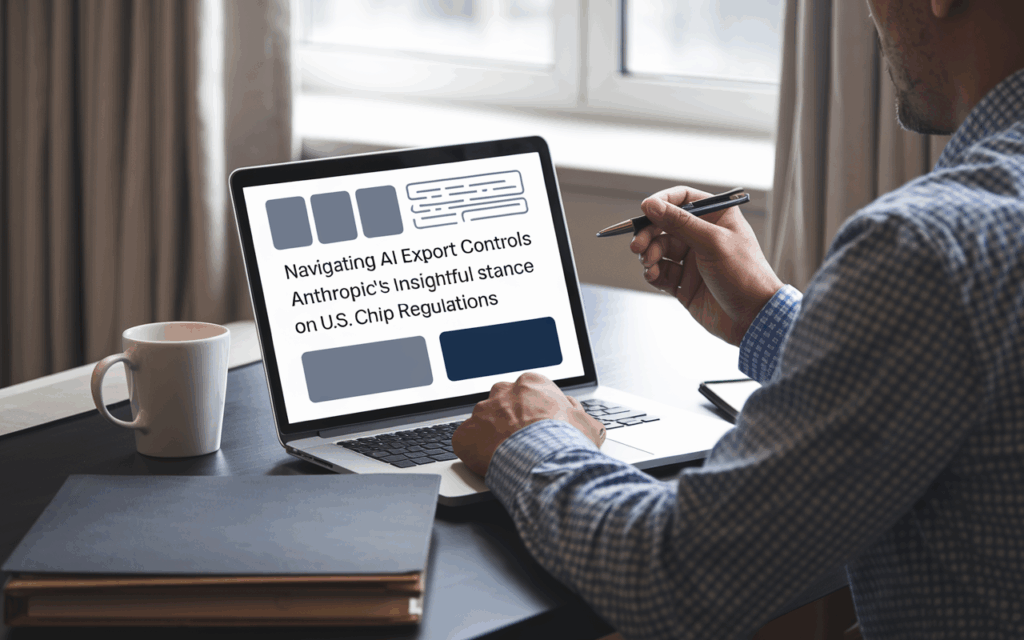Navigating the AI Landscape: Anthropic's Position on U.S. Chip Export Controls 🤖
In a world where artificial intelligence (AI) is rapidly evolving, the U.S. government is stepping up its game with export controls on AI chips to ensure national security and maintain its competitive edge against emerging tech powerhouse China. 🌍 Recently, Anthropic, a leading AI company co-founded by the outspoken Dario Amodei, voiced its support for these proposed restrictions, while seeking a few adjustments to optimize their effectiveness.
The Proposal at a Glance 📋
The U.S. Department of Commerce has introduced a framework for AI chip export controls that categorizes countries into three tiers, each facing varying levels of restrictions. Tier 3 (including nations like Russia and China) will face the strictest limits, while Tier 1 (like Japan and South Korea) will see no new restrictions. Tier 2, comprised of countries like Mexico and Portugal, will now come under export restrictions for the first time, capping the number of chips they can acquire.
However, the proposal has sparked debates within the industry, with semiconductor giant Nvidia labeling it "unprecedented and misguided," claiming it could potentially stifle global innovation.
Anthropic's Perspective 💬
Not surprising, considering Dario Amodei’s previous advocacy for strong export regulations, Anthropic released a blog post expressing their stance on the matter. The company "strongly supports" the framework but suggests several tweaks to ensure that these restrictions can be enforced effectively without undermining international partnerships. One significant recommendation is to lower the number of chips Tier 2 countries can buy without scrutiny while promoting government-to-government agreements to avoid smuggling. 🕵️♂️
Amodei has been a vocal proponent of tighter controls, previously penning an op-ed detailing why the U.S. needs robust export restrictions to maintain its tech dominance.
The Bigger Picture 🌏
In essence, Anthropic's push for adjustments also emphasizes the need for the U.S. government to allocate more resources to enforce these export controls effectively. This reinforces the notion that while strict regulations are essential for safeguarding technology and national interests, the implementation strategy is equally crucial.
In Closing 📝
As the AI landscape continues to shift and evolve, the balance between fostering innovation and protecting national interests becomes increasingly delicate. With companies like Anthropic advocating for strategic adaptations to policy measures, we could see a more integrated approach that supports both innovation and security.
What are your thoughts on AI chip export controls? Do they strike the right balance? Share your views in the comments below! 💬👇
If you're keen to explore deeper insights into tech developments, don't forget to subscribe! ➡️
[#AI #TechInnovation]

More Stories
Meta’s AR Ambitions and AI Safety: Insights from the Equity Podcast
Insight Partners Data Breach: A Wake-Up Call for Cybersecurity Awareness
Lovable’s Ascendancy: Anton Osika at TechCrunch Disrupt 2025